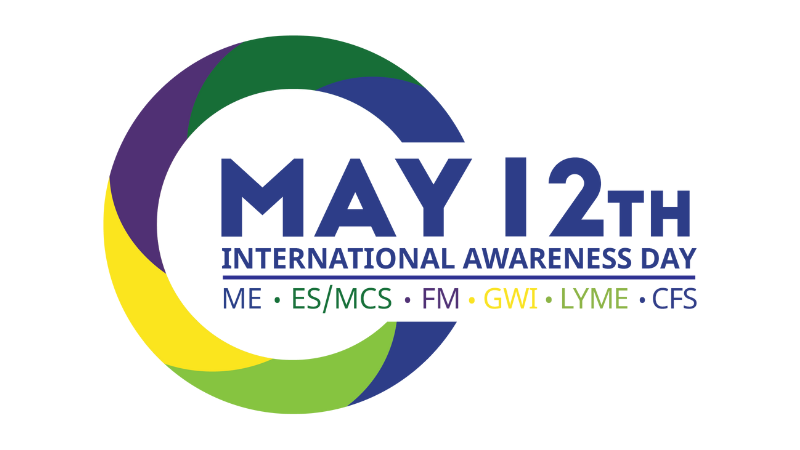

Do We Still Need Protection From COVID-19?
In short, yes. Although we no longer see COVID-19 updates in the news, new infections, hospitalisations and deaths continue to occur in Australia. Long COVID is also a risk for many, including those with underlying chronic conditions.
The following information has been sourced from the Patient Information on the COVID-19 Vaccination in Autoimmune Inflammatory Rheumatic Diseases resource published on 14 June 2024 by the Australian Rheumatology Association (ARA).
Why is it Important for Me to Have the COVID-19 Vaccine?
Some diseases (including rheumatoid arthritis) are caused by the body’s immune system, which usually protects us from infection. When the immune system is affected by arthritis or medicines to treat the condition, the risk from COVID-19 may be increased.
If you get vaccinated, you will be less likely to get COVID-19. Even if you do get COVID-19 when vaccinated, it is more likely to be a milder illness.
What Vaccines Are Available?
XBB.1.5 vaccines are the preferred COVID-19 vaccines over other available vaccine types. The following COVID-19 vaccines are currently available in Australia:
Vaccines for children (5 years+)
- Comirnaty Omicron XBB.1.5 (Pfizer) 5 – 11 years
- Comirnaty Original (Pfizer) 5 – 11 years
- Comirnaty Original (Pfizer) 6 months – 4 years
Vaccines for adolescents and adults (12 years +)
- Comirnaty Omicron XBB.1.5 (Pfizer)
- Comirnaty bivalent Original/Omicron BA.4/5 (Pfizer)
- Spikevax Omicron XBB.1.5 (Moderna)
Talk with your doctor, pharmacist or vaccine provider to find out which COVID-19 vaccine is best for you.
For more information on COVID-19 vaccination in Australia, visit: https://www.healthdirect.gov.au/covid-19/vaccinations
How Many COVID-19 Vaccines Do I Need?
The number of vaccinations and booster doses you need depends on your age and whether you have a medical condition that increases the risk of severe COVID-19 illness. This Recommended COVID-19 vaccines poster outlines the doses recommended for each age and population group. https://www.health.gov.au/sites/default/files/2024-05/recommended-covid-19-vaccine-doses.pdf
This ATAGI recommendations outlines the use of a 3rd primary dose of vaccine in individuals that are severely immunocompromised: https://www.health.gov.au/news/atagi-statement-on-the-use-of-a3rd-primary-dose-of-covid-19-vaccine-in-individuals-who-are-severelyimmunocompromised?language=en
How Often Should I Have the COVID-19 Vaccine?
ATAGI recommends a dose of COVID-19 vaccine in the following population groups:
- Children (<5 years) – not recommended
- Children and adolescents (5-17 years) – can consider every 12 months in those with severe
- immunocompromise
- Adults (aged 18-64 years) – can consider a dose every 12 months, however in those with severe immunocompromise, recommended every 12 months and can consider every 6 months
- Adults (65-74 years) – recommended every 12 months and can consider a dose every 6 months
- Adults (≥75 years) – recommended every 6 months.
For further information, see: Australian Immunisation Handbook COVID-19 Chapter: https://immunisationhandbook.health.gov.au/contents/vaccine-preventable-diseases/covid-19
Will the Medicines That I Take for My Condition Affect the Way the Vaccine Works?
Some people who are taking medicines that suppress the immune system may be given advice to continue avoiding exposure to COVID-19 after they have had the vaccine. This is because their medications could mean their immune system does not respond as strongly to the vaccine as people who don’t take these drugs.
This does not mean you should stop your treatment, because this can result in a flare of your condition which puts you at greater risk from COVID-19. The timing and dosing of some medicines may also need to be individualised, if you are unsure, please speak to your treating rheumatologist for advice.
Can I Have Other Vaccines (e.g. Influenza Vaccine) at the Same Time as the COVID-19 Vaccine?
Yes, the COVID-19 vaccine and the influenza (flu) vaccine can be safely given at the same time. You do not need to delay your flu vaccine, in fact the COVID-19 vaccine does not protect against the flu, so it is important to still have your annual flu vaccine.
Do You Still Need to Have the Vaccine if You Have Had COVID-19?
Yes, people who have had COVID-19 should still be vaccinated with a COVID-19 vaccine. This provides extra protection against future infections. Wait for 6 months after COVID infection or previous dose of COVID vaccine before receiving a COVID-19 vaccine booster dose.
Further Resources:
- Australian Government COVID vaccine fact checker: https://www.health.gov.au/initiatives-andprograms/covid-19-vaccines/is-it-true
- Information about booster vaccinations and how to book a vaccination appointment: https://www.health.gov.au/resources/publications/stay-protected-with-a-covid-19-booster?language=en
- Information about getting your COVID-19 vaccination: https://www.health.gov.au/resources/publications/stay-protected-with-a-covid-19-vaccine-in-2024-for-people-with-disability?language=en
- Additional COVID-19 resources for the general public (includes translated resources): https://www.health.gov.au/resources/collections/novel-coronavirus-2019-ncovresources?language=und
This Information Sheet has been prepared using materials obtained from various sources which have been reviewed by the Australian Rheumatology Association (ARA). It contains general information only and does not contain a complete or definitive statement of all possible uses, actions, precautions, side effects or interactions of the medicines referenced.
This information is not intended as medical advice for individual conditions nor for making an individual assessment of the risks and benefits of taking a particular medicine. Decisions regarding the assessment and treatment of patients are the sole responsibility of the treating medical professional, exercising their own clinical judgment and taking into account all of the circumstances and the medical history of the individual patient.
ARA has used all reasonable endeavours to ensure the information on which this Information Sheet is based is accurate and up to date. However, the ARA accepts no responsibility or liability for the accuracy, currency, reliability and/or completeness of the information contained in this Information Sheet.
To the maximum extent permitted by law, the ARA expressly disclaims any liability for any injury, loss, harm or damage arising from or in connection with use of and reliance on the information contained in this Information Sheet.
This information sheet is copyright and may be reproduced in its entirety but may not be altered without prior written permission from the ARA.
The information above is correct as of 14 June 2024.




